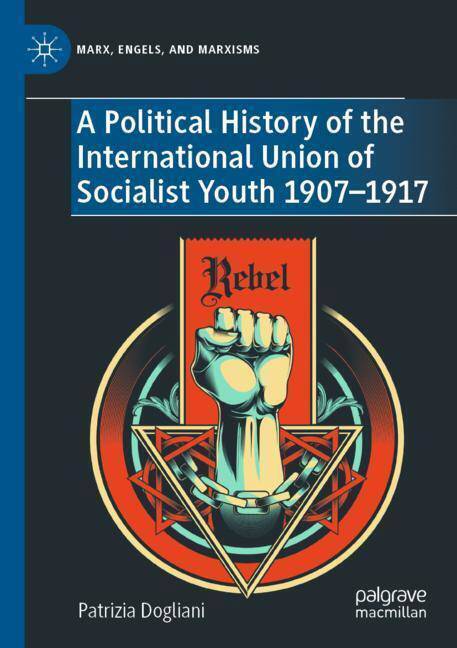
- Retrait gratuit dans votre magasin Club
- 7.000.000 titres dans notre catalogue
- Payer en toute sécurité
- Toujours un magasin près de chez vous
- Retrait gratuit dans votre magasin Club
- 7.000.0000 titres dans notre catalogue
- Payer en toute sécurité
- Toujours un magasin près de chez vous
A Political History of the International Union of Socialist Youth 1907-1917
Patrizia DoglianiDescription
This book represents a valuable contribution to the history of the Socialist Second International and, more generally, of European socialism between the Great Depression of the 1880s and WWI. It comes to fill a gap in the scholarship, insofar as it investigates the history of the Socialist Youth International. During the first phase of the making of socialist parties, this organization was in charge of the political and cultural education of the proletarian youth. Capitalizing on an approach based on social, quantitative and political history, and on an analysis of mentalities and languages, the book reconstructs the many-sidedness of the "school of recruits" of the social-democratic and revolutionary movements. The working conditions of youth in Europe, its unionization and economic struggles, the fight against militarism, the pedagogical work, the internationalism and the commitment to maintain peace, and the attitude of young militants towards Bolshevik revolution are some of thethemes investigated in the book. It also clarifies the role and the engagement with the issue of the new generation shown by prominent figures of Marxism such as Karl Liebknecht, Jean Jaurès, Henri De Man, Willi Münzenberg, Henriette Roland Holst, and Robert Danneberg. Finally, the book constitutes also a page of European social and political history, reconstructed through the history of the various youth socialisms and their relationship with the Marxist tradition.
Spécifications
Parties prenantes
- Auteur(s) :
- Traducteur(s):
- Editeur:
Contenu
- Nombre de pages :
- 238
- Langue:
- Anglais
- Collection :
Caractéristiques
- EAN:
- 9783031206962
- Date de parution :
- 26-04-24
- Format:
- Livre broché
- Format numérique:
- Trade paperback (VS)
- Dimensions :
- 148 mm x 210 mm
- Poids :
- 346 g

Les avis
Nous publions uniquement les avis qui respectent les conditions requises. Consultez nos conditions pour les avis.






